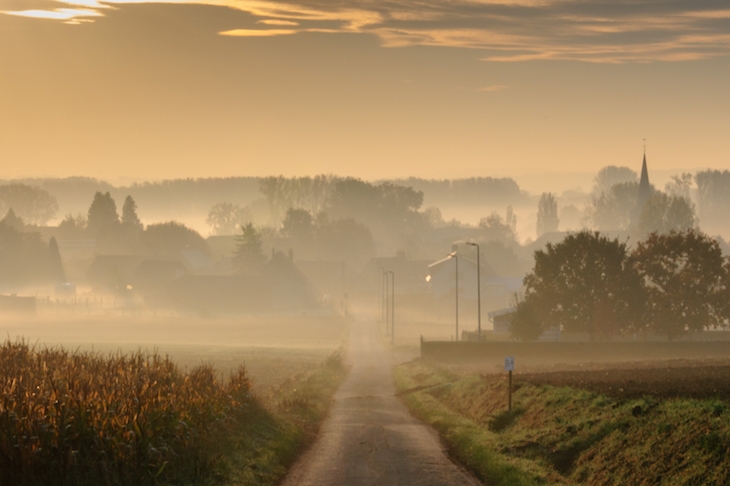Peace came dropping slow. I have never regarded west Flanders as part of la France profonde, but here we were, only a few miles from Lille, in the depths of tranquillity. Earlier in the summer, there had been an excitement. An enormous wild boar had erupted into the garden. Our host shot him, and excited littlies promptly renamed their grand-père: Obelix. I had entertained Yves at a club table. His reciprocity was embarrassingly more generous than his excuse for it.
Inevitably, the conversation meandered into politics. The house had a complex history. Vauban is said to have billeted himself there before fortifying Lille. It suffered some damage in both world wars. The family lost relatives during that cruel necessity, the Allied bombing of Normandy to expedite D-Day. Other relations perished in German slave labour camps. The younger Yves had been a disciple of Jean Monnet, that most formidable of French federasts. So why could we British not join in the grandeur of the EU? It was not a mere counting-house exercise in computing trade balances. It was a mission civilatrice, to save Europe from its peoples’ barbarous instincts.
There was a simple answer: the Channel. Geography had determined history. Seawater had protected us, at least after Duke William, and his invasion was a felix culpa, since it bound Britain into European civilisation and prevented us from becoming part of south Scandinavia. De Gaulle may have had mixed motives, in that he did not want the British to impede his attempts to dominate Europe. But he was also right to believe that our allegiance was ultimately Atlantic, not European.
Bewildered, Yves shook his head. Apropos de Gaulle, I praised Julian Jackson’s magisterial life, part of my summer reading, a biographical premier grand cru. He portrays de Gaulle as a tortured monster, as impossible as he was indispensable. After 1940, for all his faults, he saved the honour of France. Ferdy Mount, well-known in this magazine, has argued to the contrary. He believes that even without de Gaulle, France would have been succoured at the war’s end, and that by his near terminal alienation of Churchill and Roosevelt, the General’s sociopathic behaviour could have left France worse off. Stimulated by the odd bottle, that is material for endless counter-factual fun.
By now it was dinner. In my honour, or in an attempt to embarrass me, or both, we had boeuf Wellington, made from Aberdeen Angus. So I was able to toast the auld alliance, as well as the foie gras part of the menu. We were drinking Haut Bailly, 2004 and 2005. Yves knows its vigneronne, Veronique Sanders. Witty, subtle, mischievous, beautiful, a poem of womanhood, Veronique is a superb winemaker. Although I wish that I could recall tastes, I do not have a palate memory and have to rely on intellect. So I know that Haut-Bailly is not as great as its neighbour, Haut Brion: a cruiser to a battleship. But as I had not drunk a first growth for some weeks, it was hard to believe that the Haut-Bailly could be surpassed. It was a blind tasting, which I always find terrifying. But we all got it right. Harmonious and delicious, the 2004 was fully ready. From the greater year, the 2005 justified its ranking with an extra dimension. It is still not at its peak of peaks.
After dinner, we moved on to some serious tasting. Various locals produce homegrown Calvados. By bootleg standards, it was pretty good; much better than any poteen I have ever sampled. There was an inevitable consequence. Although I do not suffer from hangovers, I did need a drench of tea in the morning. It was followed by glorious black pudding from the sang of the sanglier, accompanied by a stonking Bloody Mary. Two tributaries of blood: what could be better?






Comments